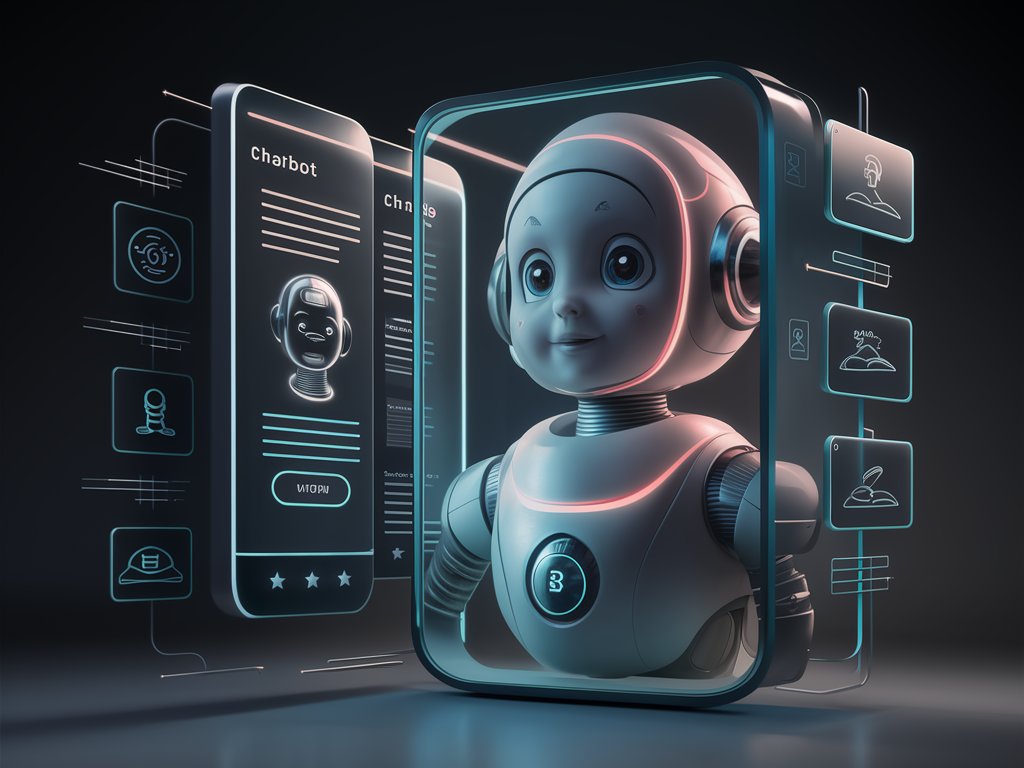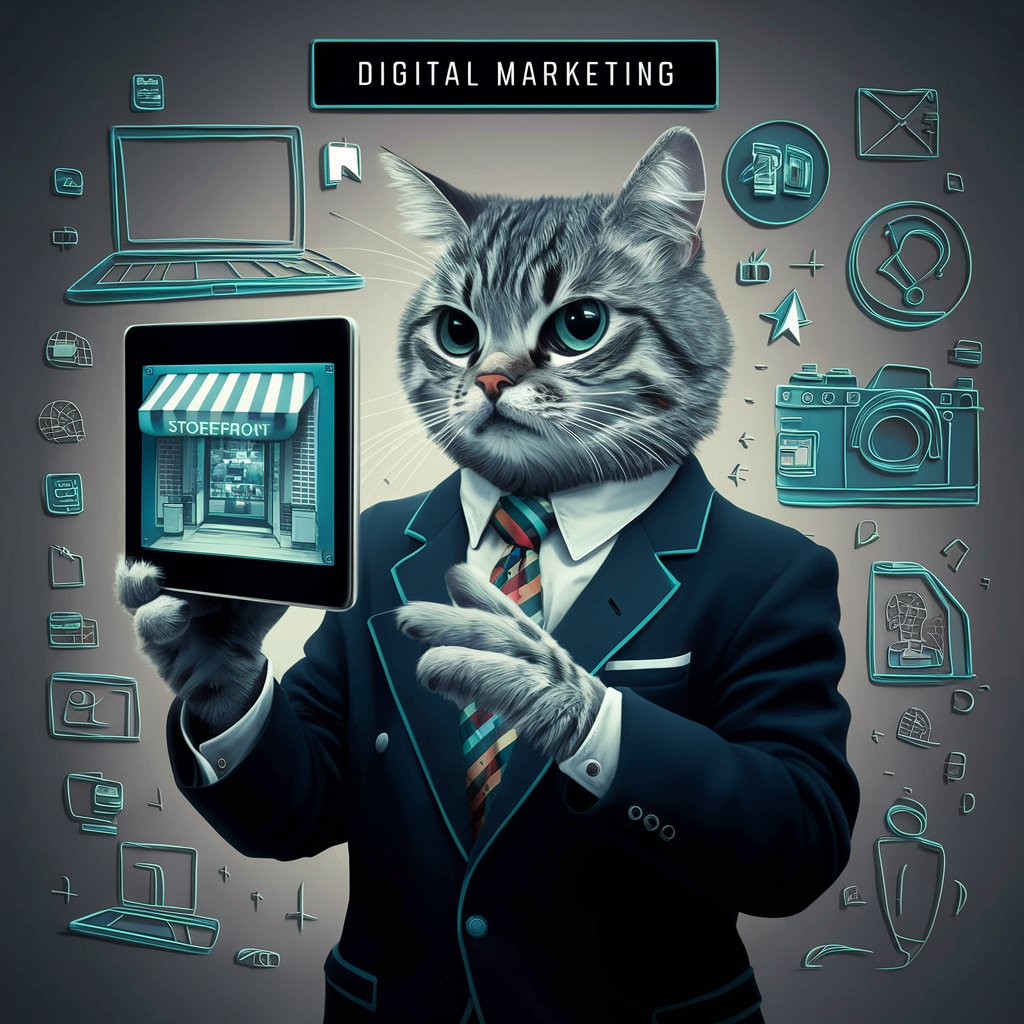

Introduction
Since ChatGPT has become an irresistible phenomenon which is further transforming our life, Artificial Intelligence (AI) has taken the position of an unavoidable change-maker that shapes every part of our lives. AI effects are going above and beyond in such economic domains like health care and finance, and now more than ever, an emerging role of AI in Digital Marketing. Various opinions exist on AI's future trajectory: others perceive a condition in which robots are cobbing the jobs due to the high technological abilities of artificial intelligence whereas another group think that AI can make our lives better by boosting our abilities and help us to do things faster and greener. AI introduces unparalleled levels of automation, decision-making, and personalization to digital marketing.
The statistics conveyed by WebFX seem astonishing that come 2028 the smart marketing with AI will reach an unmatched height of $108.000 billion. The really wild thing, though, is that more than 80 percent of marketers worldwide already use AI in one form or another in a bid to realise its immense value. The use of AI in content generation appears as quite a trend in digital marketing, according to a survey where around 21.5% of marketers use it to improve productivity and effectiveness. These digits show how AI is being adopted so fast and which is acknowledged as a key instrument in the ever changing world of digital marketing.
Artificial Intelligence (AI) is transforming digital marketing by automating tasks, personalising experiences, and optimising campAIgns with data-driven insights. This allows businesses to reach and engage customers more effectively and impactfully, which ultimately increases return on investment and improves customer satisfaction.
A. Personalization
In the world of digital marketing personalization is the key to engage potential customers and get more and more conversions. In traditional method personalization involved segmenting audiences based on demographics or past behaviour. But in the current scenario AI has taken that to a whole new level.
Automated Customer Segmentation
AI has revolutionised the audience segmentation by simply automating it and adding additional factors for it. These algorithms now can analyse large amounts of customer data including demographics, purchase history, social media interactions and browsing behaviour. This way the marketer can get micro segments and with laser focused targeting they acquire more customers with less investment.
Content Recommendations and Chatbots
As we all know there has been a boom of chatbots in the ecommerce space. These AI powered chatbots answer the queries of customers and engage them on a personal level.
AI can also analyse the vast amount of user data and use this data to make recommendations.
Some standout examples of these are Netflix which uses AI to recommend movies and tv shows while Sephora uses chatbots to offer personalised beauty products.
B. Content Creation fueled by AI
Creating content that connects with consumers can be a major challenge for marketers. Here’s where AI steps in:
Brainstorming: AI can go over trends, customer searches and content of competitors to suggest relevant themes. This also helps content creators to overcome writer’s block and reach target audiences.
Assistance in writing: AI chatbots like ChatGPT, Bard etc can generate drafts based on your keywords. They can write product descriptions, blogs, even captions for social media handles. While they cannot replace humans, they can certAInly speed up the process of content writing.
Generating Images: AI is no longer limited to just words now. AI powered tools can generate visuals of products that can be quite appealing for consumers. It can generate images of the same product with countless variations.You can even create short social media posts based on product specifications.
Overall, it’s important to remember that AI cannot replicate the creativity of humans. It can certainly assist you in the process.
C. Campaign optimization and targeting with AI
The most important goal in any digital marketing campaign is to reach the right audience for your product or service. Previously, this involved a lot of guesswork and manual adjustments. However, AI takes it to a whole new level.
Data-Driven Optimization: AI stands out at analysing large amounts of campAIgn data, including ad impressions, clicks and conversions. This can identify such patterns which humans might miss. AI can literally pinpoint which time will be best for you to publish your ad and reach maximum people.
Predictive Targeting: Historical data and current trends can be leveraged to predict the future behaviour of customers with help of AI. Let’s suppose you sell phones and you get to target users who are showing early signs of researching for a new phone. There are really good chances of them being your potential customers.
Budget Allocation: The pillar of any good digital marketing campAIgn is budget allocation. To get maximum return on your investment it’s so important to get it right and AI can help you with that by analysing previous campAIgns. It can suggest budget adjustments that ensure your resources are being utilised in the right area.
D. SEO and SEM
Search Engine Optimization and Search Engine Marketing are important aspects of any strategy in digital marketing. It involves keyword research and content optimization. By now we know AI can definitely help with that.
Keyword Research: The research for keywords is the building block of SEO and SEM. With AI tools, marketers can identify high volume keywords and trending topics that are our target audience actively looking. This also allows businesses to create such content that resonates with consumers.
Programmatic Advertising Buying: AI is involved in programmatic advertising, which is relevant to SEM as previously discussed. By continually assessing data to identify the best-suited keywords and ad placements, artificial intelligence (AI) algorithms may automate the process of purchasing ad space on search engines like Google Ads. By doing this, you can be sure that users who are actively looking for terms associated with your product or service will see your advertisements.
Benefits of using AI in marketing
The integration of AI into digital marketing can offer a number of advantages to businesses of any size.
ROI: The biggest advantage of use of AI in digital marketing can definitely be an increase in return on investments. With precise audience targeting and data driven campAIgn strategies ultimately lead to better return on investments and increase brand value with controlled budgets.
Customer Satisfaction: Every customer looks for good personalised experiences in today’s digital world. AI can provide you that. Accurate content recommendations and personal chat interactions are fundamental blocks of personalization. This leads to better engagement and builds brand loyalty. All of this ultimately leads to happier customers.
Data-Driven Decision Making: Traditionally marketers were just playing guessing games about their marketing strategies and who can be their potential customers. But AI provides data driven insights on huge amounts of data which allows for informed decision making in every aspect of the campAIgn.
Content Creation: The search for right keywords and content optimization can be repetitive tasks. With the help of AI it can be automated which can save time and cost.

Challenges and Considerations
Of Course there are abundant advantages of using AI in digital marketing. But new technologies always raise some questions.
Potential Job Displacement: With AI being able to handle repetitive marketing tasks this can lead to job displacements in some areas. It’s important to keep upskilling yourself and focus on tasks that require human creativity and inputs.
Cost of AI Tools: The AI tools can be quite expensive. There are some upfront costs like subscriptions and in some cases ongoing costs for maintenance and data storages. For small businesses this can be a barrier.
Bias in Algorithms: AI algorithms are as good as the dataset they are trained on. The algorithms trained on biassed dataset can lead to marketing disaster. It’s important to ensure that AI algorithms get trained on a diverse and clean dataset.
Need for Human: One thing has to be crystal clear that AI is not some magic. You need a human to successfully operate AI tools in and get desired results from it. Need of human expertise will always be there.

The future of AI in digital marketing is really promising to say the least. Consider an AI tool that personalises experiences to an emotional level, or create virtual reality experiences for customers that will take the engagement to new heights. However human expertise will still be relevant.
Conclusion
In conclusion, artificial intelligence is now an important element in digital marketing. By automating processes, personalising interactions, and enhancing advertising campaigns with data-driven insights, artificial intelligence (AI) enables businesses to engage with customers deeper and deliver better results. AI offers a lot of benefits, but it also has certain disadvantages, such the potential for job relocation and moral dilemmas. Future advances, such as the potential for even more advanced customization, AR/VR integration, and AI-driven creative content production, seem quite promising. But we must put people first if we are to effectively navigate this exciting future. AI is most effective when it serves as a powerful tool that compliments human creativity and strategic thinking.
Powered by Froala Editor